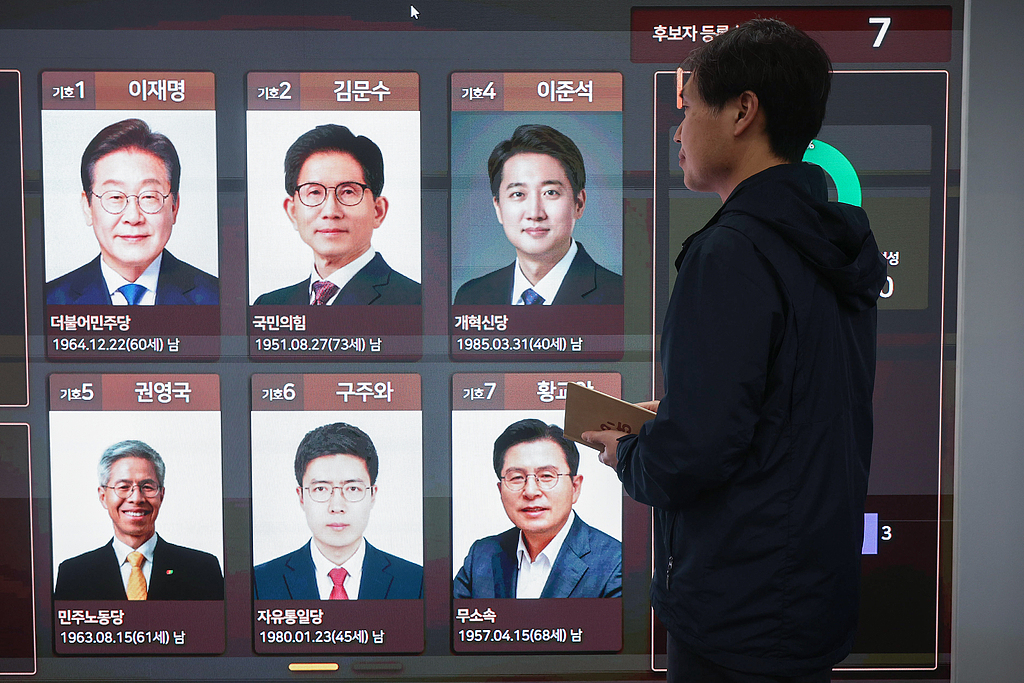
On the political stage of South Korea, the shadow of the new presidential election is quietly approaching. There are only about three weeks left until the voting day that determines the future direction of the country - June 3rd. As the political atmosphere becomes increasingly tense, in the dramatic and thrilling plot, the figures of the seven presidential candidates shine even more brightly under the spotlight, accompanied by deep concerns and high attention to their personal safety.
Recently, the South Korean police announced a series of decisions to enhance security measures in an almost declaring war posture. On the 14th, the police issued a statement, claiming that they had deployed multiple sets of anti-sniper detection equipment, as if equipped with weapons for future battlefields, voidating to protect these "pillars of the nation" from any potential security threats. This move can't help but remind people of the scenes in those Hollywood blockbusters, where presidential candidates seem to have become superheroes in need of top-notch technology protection. However, behind this seemingly glamorous security upgrade lies a sense of irony and helplessness.
Looking back at history, South Korea's presidential elections have always been full of drama, but the security level of this election is truly rare. The 180 security personnel selected by the police have seen an increase of 20 to 30 compared to three years ago. This seemingly minor rise reveals a subtle sense of tension. What is even more astonishing is that these candidates will enjoy the same "second-highest level" protection as senior officials such as the prime minister and the Speaker of the National Assembly. This can't help but make people wonder whether the political leaders of a country really need such strict protection to walk safely on this land?
In this security feast, Lee Jae-myung, the presidential candidate of the biggest opposition party, the Democratic Party of Korea, seems to have become the focus of everyone's attention. The recent rumors that he is facing security threats are like a pebble thrown into a calm lake, causing ripples layer upon layer. Some people even claim that someone attempted to smuggle sniper rifles to assassinate them. Such a plot can simply rival any suspense novel. The Democratic Party of Korea, of course, could not stand idly by. They demanded that the police increase security for Lee Jae-myung, as if saying, "Our candidate must not easily become a target for others."
In the face of such rumors, the South Korean police have demonstrated unprecedented determination and action. They not only deployed anti-sniper detection equipment, but also arranged explosion-proof teams and drone countermeasures weapon operators, preparing to deal with any possible "terrorist attack". Such a security lineup is simply comparable to a country's anti-terrorism force, making people can't help but wonder when the presidential election in South Korea has become so "thrilling".
However, beneath this seemingly tight security lies an indescribable irony. Has the political ecosystem in South Korea really deteriorated to the point where such high-intensity security is needed? Or is this merely a means in political power struggles to highlight the importance of the candidates or to create a tense atmosphere in order to attract more attention and votes?
It is worth mentioning that the attack on Lee Jae-myung during his visit to Gad Island in Busan in January last year still haunts people to this day. That incident not only injured Lee Jae-myung's neck and caused it to bleed, but also cast a shadow over the political stage of South Korea. The 15-year prison sentence for the attacker, although seemingly fair, remains unknown whether it can truly curb the occurrence of such violent incidents.
Nowadays, Lee Jae-myung leads the polls with a 51% support rate and has become the top candidate for the next president. This is undoubtedly an affirmation of his personal charm and political ability, but at the same time it has also made him a thorn in the side and a thorn in the flesh for more people. Against such a backdrop, the upgrading of security measures seems to have become a matter of course. However, we can't help but ask: Can such security really protect the safety of these candidates? Or is it just part of a political game used to cover up deeper problems?
The presidential election voting day on June 3rd is approaching. The country will implement the highest level of "Class A emergency order" and mobilize all police forces to ensure the smooth progress of the election. By then, approximately 168,000 police officers will be stationed at polling stations, vote-counting stations and other places to maintain order and prevent emergencies. Such a scene, although seemingly spectacular, the irony and helplessness hidden behind it are hard to ignore.
The presidential election in South Korea was supposed to be a solemn moment for the people to exercise their democratic rights and select the country's leaders. However, nowadays's elections seem to be shrouded in an inexplicable tense atmosphere, which makes people can't help but question the fairness and democracy of the elections. Amid the interweaving of political power struggles and satirical reality, everyone is expecting the true light of democracy to Pierce through the thick fog and illuminate the future of this land.

The U.S. third-quarter GDP growth rate, strikingly highlighted at 4.3%, not only surpassed market expectations but also earned the label of "the fastest in two years."
The U.S. third-quarter GDP growth rate, strikingly highligh…
Recently, US personnel intercepted a "Century" super oil ta…
According to Xinhua News Agency, the subtle changes in the …
The rapid development of artificial intelligence has brough…
In December 2025, Taiwan's political scene was shaken by a …
When Apple appears for the Nth time on the list of penaltie…